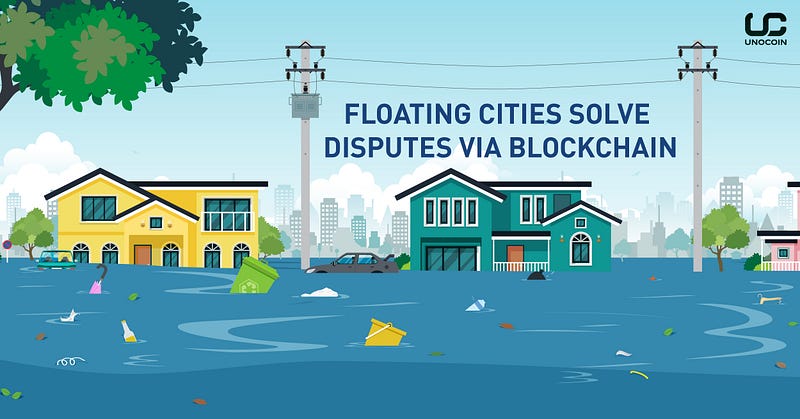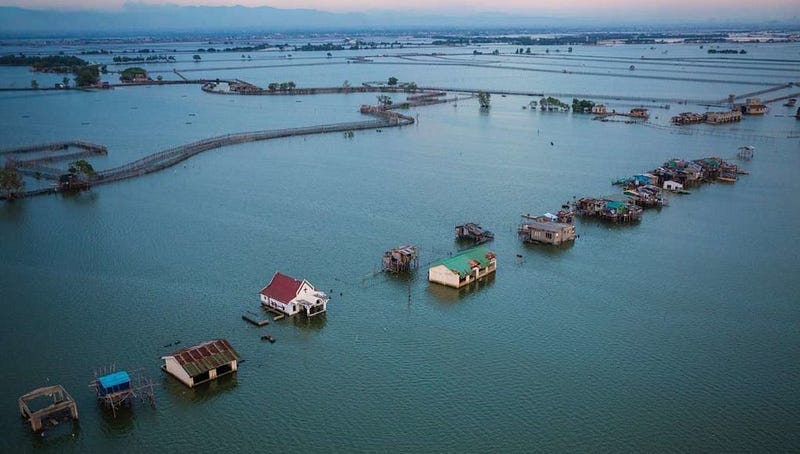
There have been conversations about building communities where individuals with similar interests and motives would live together beyond the boundaries of modern nation states and work towards a common outcome. Blue Frontiers is a blockchain-based technology leader that creates governance frameworks and sustainable ecosystems. Seasteads are floating communities that monitor and combat sea level rise. This could be used by coastal inhabitants and island countries to create additional habitable land on the oceans and seas for their residents. While that in itself in amusing and impressive, Blue Frontiers also announced the use of blockchain technology to power a seasteads’ economy with a new cryptocurrency called Varyon.

Partnership with Kleros to Provide Blockchain-based Justice
In June this year, Blue Frontiers partnered with Kleros, another blockchain-based decision-making platform that employs crowdsourcing for adjudicating claims, resolving the dispute and ensuring judicial concord among residents. It uses concepts from the fundamentals of game theory to design a set of rules that will reward the jurors who act honestly and penalize the ones’ who do not. In theory, it looks like a cost-effective, fast and efficient way to resolve disputes and enforce a fair judicial system.
The notion of a system that enables decentralized justice for transactions in Seastead communities is inspired by the game theoretical concept of Schelling point. Kleros, meaning “chance” in Greek is only apt for a system designed so, once you know what the underlying concept is. The justice system by Kleros is based on some fundamentals for random jury selection which were devised and used by the Athenians twenty five centuries ago. It is thus, a peer-to-peer justice system that can solve the issues of the modern age in a transparent way.
To solve the disputes, the arbitration process to be used by Blue Frontiers can be laid out in four steps:
1. The users transacting within the Seastead ecosystem will have to create a smart contract and select Kleros as the adjudication protocol.
2. The necessary information will then be safely transmitted to the Kleros platform.
3. A jury or tribunal selected from the juror network will then assess the evidence of the individual case and finally, cast their votes.
4. This decision will be enforced by the previously written smart contracts, thus, ensuring a fair and transparent outcome.
While it is inevitable that the residents of Seasteads will have disputes and will need to have them solved, it is also important to note that with the advancement of technology, blockchain’s intervention in the judicial system will ensure that a just system is put in place for these residents. This will help the residents serve their purpose, i.e. facilitate innovation in how humans choose to model habitation, form decentralized communities and also govern their affairs in a more efficient and a cheaper way. The Kleros protocol used in the judicial system can be employed across disputes that need technical expertise like, allocation of resources among parties viz. insurance, e-commerce, freelancing, crowdfunding, gaming, and others.
Also Read:
https://blog.unocoin.com/merits-of-us-justices-investigation-into-cryptoassets-9a07bef95cf0



![Fundamental Analysis in Crypto [Updated Guide] A Comprehensive Guide to Asset Valuation.png](https://blog.unocoin.com/wp-content/uploads/2024/11/A-Comprehensive-Guide-to-Asset-Valuation-218x150.png)